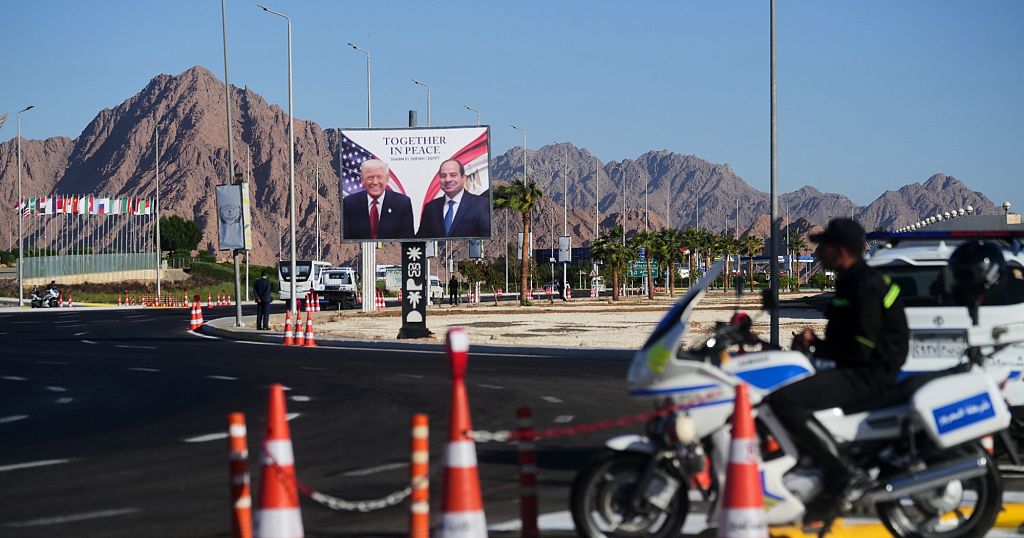International leaders have gathered in Sharm el-Sheikh, Egypt, to discuss the next steps in the Israel-Hamas peace process. The summit, co-chaired by US President Donald Trump and Egyptian President Abdel Fattah al Sissi, brings together representatives from over 20 countries, including Palestinian Authority leader Mahmoud Abbas and United Nations Secretary-General Antonio Guterres. Notably, Hamas will not be participating, and Israeli Prime Minister Benjamin Netanyahu’s attendance has not been confirmed.
The recent release of 20 Israeli hostages has raised hopes for a potential end to the conflict. However, several key issues remain unresolved, including the governance of Gaza and the disarmament of Hamas, a condition insisted upon by Israel. Hamas has refused to disarm, instead demanding the complete withdrawal of Israeli troops from Gaza.
A US-proposed peace plan suggests the deployment of an Arab-led international force to maintain security in Gaza, with Israeli forces withdrawing from areas where these forces are deployed. The plan also mentions the possibility of a Palestinian state, an idea that Israeli Prime Minister Benjamin Netanyahu has previously rejected.
The conflict between Israel and Hamas began two years ago, when Hamas launched a surprise attack on southern Israel, resulting in the deaths of 1,200 people and the kidnapping of 251 others. Israel’s subsequent offensive against Hamas has had a devastating impact on Gaza, with approximately 67,000 Palestinians killed and 90 percent of the territory’s 2 million residents displaced.
The summit in Sharm el-Sheikh aims to address these pressing issues and work towards a lasting resolution to the conflict. With the international community watching, the talks are seen as a critical opportunity to establish a framework for peace and stability in the region. As the discussions progress, the focus will be on finding a mutually acceptable solution that addresses the concerns of all parties involved, including the governance of Gaza, the disarmament of Hamas, and the potential for a Palestinian state.
